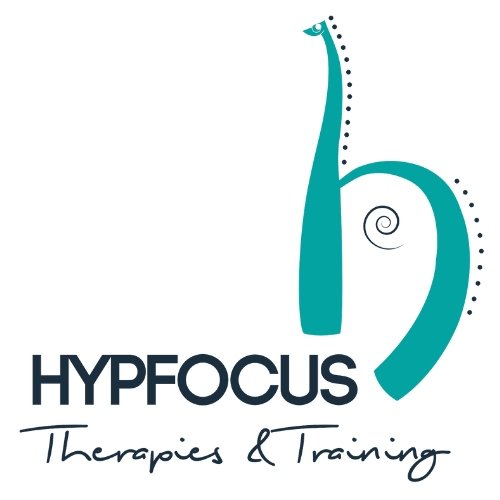Understanding Your TMJ Pain Patterns
Jaw pain can feel like it comes out of nowhere. One day you're chewing a sandwich and suddenly notice a dull ache near your ears. Or maybe it’s a tight, clenching feeling that visits almost every night, leaving your jaw sore by morning. If that’s something you’ve been living with, you’re not alone. TMJ (temporomandibular joint) pain isn't always easy to pin down at first. It just shows up in odd ways. Sometimes it's headaches. Other times, it’s teeth that always seem a bit sensitive or a neck that won’t stop feeling tight.
These little signs are your body’s way of flagging that something might be going on under the surface. And while pain relievers or mouthguards might provide short-term comfort, the patterns behind TMJ pain often hang around unless we look at what’s driving the tension to begin with. That’s where hypnotherapy can offer a different approach. Instead of trying to wrestle the jaw into a relaxed position, it goes deeper, helping the brain unlearn stress responses that may be feeding the pain in the first place.
What Is TMJ Pain?
The temporomandibular joint sits just in front of your ears, one on each side, and acts like a hinge that connects your jaw to your skull. It’s what lets you speak, chew, and yawn. When that joint isn’t working smoothly, small everyday actions can become pretty uncomfortable. In some cases, it’s a clicking or popping sound when you open your mouth. In others, it might feel more like a dull ache or cramped pressure in the jaw muscles that worsens with stress or chewing.
TMJ pain can vary from day to day. Some people feel it like jaw stiffness in the morning, others as soreness that builds across the day. It might radiate to the head, neck, or shoulders, and it often shows up with other symptoms like:
1. Headaches that seem to start near your temples or around your ears
2. Pain when chewing, especially tougher foods
3. A locked jaw or trouble opening the mouth fully
4. Clicking or popping sounds with movement
5. Clenching or grinding teeth during sleep
The trickiest part is that TMJ disorders often have more than one cause. For some, it’s the way they sleep. For others, it might be long-term posture issues or a history of accidents or injuries. But one of the most common and overlooked contributors is stress. When the body goes into tension mode, our muscles take the hit. And for many, that tension ends up in the jaw.
Stress can show up in different ways, like unconscious teeth grinding (bruxism), especially during the night. Over time, this wears on the muscles and the joint itself. Even if the main source of stress disappears, the grinding can linger. The brain starts to treat clenching as the default, keeping the jaw in a guarded position even when it doesn’t need to be.
October in Melbourne can bring that seasonal restlessness. It's the lead-up to end-of-year demands, longer days, and more social events, all of which can dial up background stress. For those with TMJ pain, those small changes might be enough to trigger or worsen the discomfort.
How Hypnotherapy Can Help
Hypnotherapy doesn’t attempt to physically change how the jaw moves. Instead, it looks at why the brain keeps sending signals to stay on high alert. Bruxism, especially the kind that kicks in during sleep, often happens below the level of awareness. That’s why simple reminders to relax your jaw don’t always make much difference. By the time you're clenching, the habit's already in motion.
Through guided sessions, hypnotherapy works by calming the brain enough to interrupt automatic patterns. It helps ease the nervous system into a more settled state, where defence responses like jaw tension aren't constantly running in the background. For someone who clenches at night, this might mean retraining the mind to form a new bedtime pattern — one that doesn’t cue tension in the jaw.
Here’s where hypnotherapy may help with TMJ pain:
1. Allows the body to step out of ‘fight or flight’ and into rest mode
2. Helps reprogram how the brain responds to daily tension
3. Builds awareness of stress signals earlier, before they hit the jaw
4. Supports the brain in letting go of old habits like grinding or clenching
It’s not about forcing the muscles to relax on command, but helping them not feel the need to tense in the first place. Hypnotherapy opens up that quiet space where the body no longer needs to brace for stress, and that’s often when relief starts to settle in.
Identifying Your TMJ Pain Patterns
Every case of TMJ pain has its own rhythm. Some people notice their jaw feels worse after long meetings or stressful phone calls. Others realise the pain flares up after eating tougher food or sitting at a desk for too long without a break. These moments aren’t random — they’re clues. Finding the pattern behind when and why your jaw hurts can be a big step toward easing it.
Start by paying attention to the moments when discomfort kicks in. Is it after clenching during a tense conversation? Does it happen more on days when you're running on little sleep? Sometimes the patterns are tied to posture, hydration, stress levels, or how you react to emotions like frustration or worry. Creating simple notes or using a daily journal can help bring these connections into focus.
Keep an eye on these things:
1. Times of day when pain is worse or better
2. Activities that make your jaw ache (chewing, concentrating, or driving)
3. Emotional states linked to tightness or clenching
4. Sleep quality on nights before flare-ups
5. Postures or habits like leaning on one hand or scrolling with your head tilted
Over time, these notes can paint a clearer picture. Hypnotherapy builds on this awareness by helping the mind connect with these patterns at the subconscious level. When the cause is more emotional than physical, those patterns tend to repeat quietly in the background. Hypnotherapy sessions can support the brain in letting go of old stress responses and build new ways of feeling safe, which ultimately can change how pain shows up.
This process doesn't require analysing every thought. It's more about noticing your body’s signals — like when something doesn’t feel quite right — and growing confidence that you have tools to respond in a gentler way.
Integrating Hypnotherapy Into Your Pain Management Routine
Managing TMJ pain often works better when paired with supportive practices. While hypnotherapy helps shift the deeper patterns driving the tension, it tends to be more effective when combined with regular habits that keep the body regulated throughout the day.
It doesn’t need to be a complex routine. It’s more helpful to pick small, regular actions that work for you. Some people find that a simple breathing pause in the afternoon prevents their jaw from tensing up while working. Others enjoy lying down for ten minutes with a warm compress on their jaw after dinner.
To support your hypnotherapy sessions, consider adding:
1. Gentle jaw stretches or mobility exercises from a physiotherapist
2. Supportive pillows that align your head and neck during sleep
3. Regular breaks to check for jaw tension, especially while working
4. Mindfulness techniques like progressive muscle relaxation
5. Calm nighttime rituals like journaling, herbal tea, or quiet music
The goal isn't to achieve perfection. It’s about sending your body consistent reminders that it's safe to let go. Hypnotherapy helps reinforce that message on a deeper level, and your daily habits add gentle reinforcement from the outside.
One Melbourne client shared that she used to clench her jaw through every traffic jam without realising it. After a few sessions, she began to notice it in real time — not to fix it immediately, but to create space to act differently. That tiny pause grew into something more powerful: her body began choosing ease over tension.
Hypnotherapy gives your nervous system something different to practice. And when it's paired with personal check-ins, the impact often lasts longer.
Take Control of Your TMJ Pain
TMJ pain rarely stands alone. It usually connects to how we carry stress, respond to pressure, and hold ourselves day to day. When the jaw is always braced, it can affect more than eating or talking. It can influence mood, sleep, and how you move through life.
That’s why treating TMJ pain calls for a deeper look at what your nervous system is holding onto. Hypnotherapy isn't about fixing a joint. It’s about calming the brain so your body no longer has to stay on high alert.
Not everything shifts overnight. But with consistent support and a bit of curiosity about your own patterns, real change is possible. Even simple improvements — like waking up without soreness or getting through a long day without tightening your jaw — can improve your quality of life in noticeable ways.
Sometimes we adapt so much that pain becomes the background music of our day. But that doesn’t mean it has to stay there. Step by step, those long-held patterns can loosen. And in that space, comfort can return.
If you're experiencing ongoing jaw discomfort and looking for a different way to find relief, exploring hypnotherapy for bruxism may help address the underlying stress patterns that contribute to clenching and grinding. At Hypfocus, we support clients in shifting these deep-rooted habits, allowing the nervous system to settle into a more relaxed and restful state. Discover how this gentle approach could bring lasting change and ease to your everyday life.

